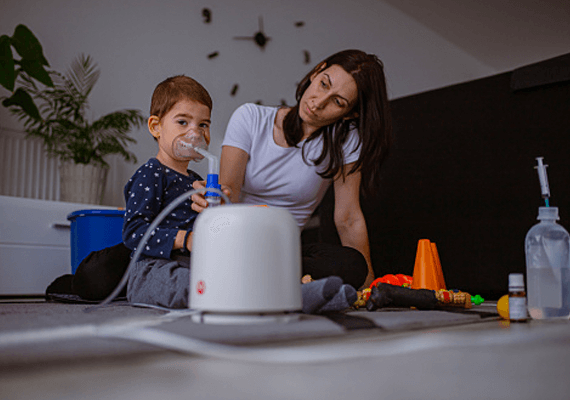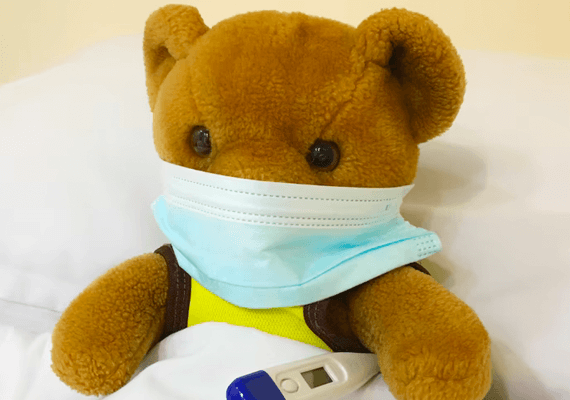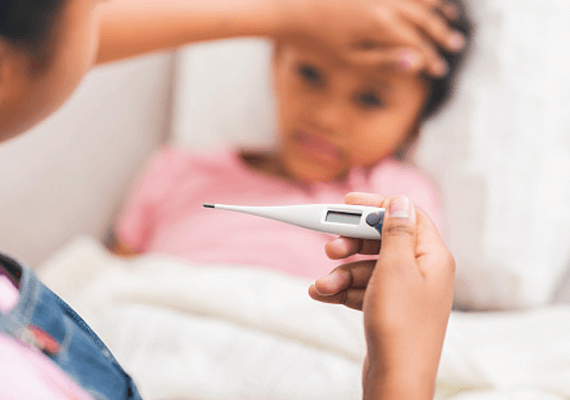Fairmont Pediatrics
Outstanding Pediatric Care located in La Porte & Pasadena, TX
When your child has diabetes, it’s important to know that you have a knowledgeable, long-term partner in providing quality health care for them. Monina Asuncion, MD< and Jilly Vidyasagaran, MD, of Fairmont Pediatrics has two office locations in La Porte and Pasadena, Texas, and over 40 years of experience treating children and teens with Type 1 and Type 2 diabetes. For ongoing support of you and your child with diabetes, call the practice or schedule an appointment online.
Diabetes Q & A
What is diabetes?
Diabetes is a chronic condition that affects how your child’s body uses glucose, which is the primary fuel for the essential processes of the body. Glucose requires the hormone insulin, which is made by the pancreas, to transport it into cells where it’s used for energy.
For a healthy child, they get glucose from the food they eat, the pancreas releases insulin, insulin transports glucose into cells, and the cells use it for fuel wherever it is needed. If your child has diabetes, their pancreas does not make enough insulin to process and use glucose. Instead, glucose accumulates in the blood, causing high blood sugar, and the fuel is not delivered throughout your child’s body effectively.
High blood sugar prevents your child’s cells, tissues, and organs from growing, healing, and working properly. Over time, uncontrolled blood sugars can cause severe long-term complications, including blindness, organ failure, and depressed immune system. That’s why keeping your child’s blood sugar levels within a certain range is important for good health.
What are Type 1 and Type 2 diabetes?
There are two main types of diabetes: Type 1 and Type 2 diabetes, and they differ in the amount of insulin naturally produced by your child’s pancreas.
Type 1 diabetes
With Type 1 diabetes, your child’s pancreas does not produce any insulin. To process glucose, they receive synthetic insulin and limit the intake of foods high in carbohydrates.
Type 2 diabetes
With Type 2 diabetes, your child’s pancreas does make some insulin but not enough to meet the needs of their body. This type of diabetes may develop due to your child being overweight, which requires higher-than-normal amounts of insulin and places too high a demand on their pancreas.
Type 1 diabetes is the most common type of diabetes in children. However, it’s more common now than in the past for overweight children to have Type 2 diabetes, and there may be a genetic component to it.
What are the symptoms of diabetes?
Your child may have diabetes if they have symptoms such as:
- Urinating frequently
- Having difficulty controlling urine after potty training
- Frequent thirst
- Feeling hungry, even after eating
- Feeling abnormally tired
- Having cuts or bruises that are slow to heal
- Pain or tingling in the hands or feet
Children with Type 2 diabetes often have similar symptoms as children with Type 1 diabetes, though typically their symptoms are milder and more easily controlled. Sometimes kids with Type 2 diabetes don’t show any symptoms at all.
What are the treatments for diabetes?
Diabetes is a chronic illness that requires ongoing management throughout your child’s lifetime. Treatments may include some or all of the following:
- Blood sugar checks
- Insulin therapy
- Oral medications
- Nutritional counseling
- Weight loss counseling
- Education for you and your child
If your child has Type 2 diabetes, a specialized diet, exercise, and healthy weight loss may help them control their blood sugars enough to avoid needing insulin on a daily basis.
If your child has symptoms of diabetes, call Fairmont Pediatrics or schedule an appointment online today.






